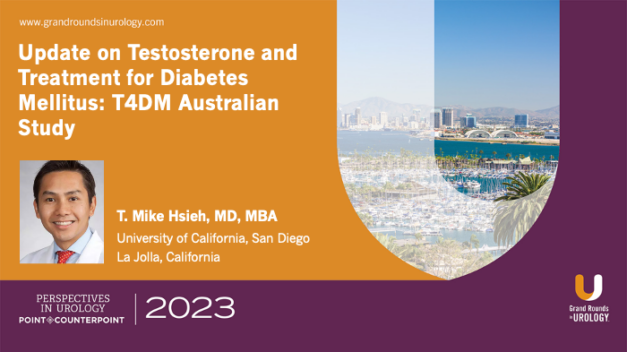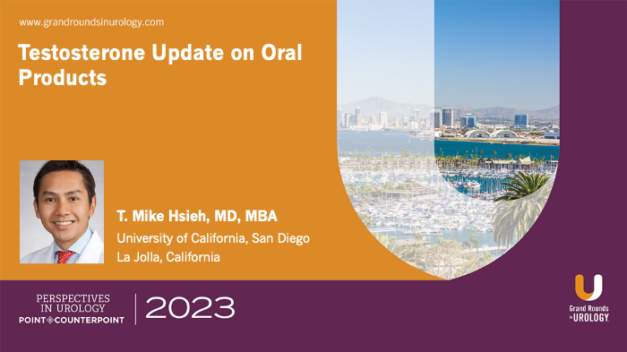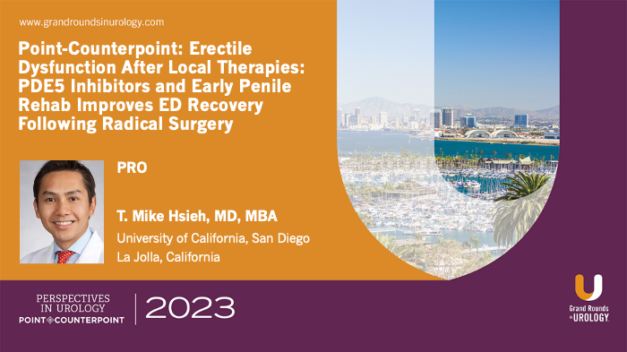Update on Testosterone and Treatment for Diabetes Mellitus: T2DM Australian Study
T. Mike Hsieh, MD, MBA, provides an update on a study examining the use of testosterone therapy (TT) to treat type 2 diabetes mellitus (T2DM) in men. He describes the Testosterone Trials and summarizes findings in men treated with TT, including a significant increase in testosterone (T) levels and subsequent improvement of symptoms.
Dr. Hsieh discusses T and diabetes, and explains that obesity with or without diabetes is associated with lower T and an increased risk of T2DM. He explains that lifestyle intervention and metformin were shown to prevent progression of prediabetes to T2DM without TT. He discusses TT and cardiovascular disease (CVD), explaining T deficiency is associated with CVD. Though there is conflicting data on the benefit of TT on CVD, the 2018 American Urological Association (AUA) Testosterone Deficiency guideline cites no definitive evidence linking TT to a higher incidence of venous thromboembolism (VTE).
Dr. Hsieh discusses an Australian double-blind, randomized, controlled trial that aimed to determine whether TT combined with lifestyle intervention vs. lifestyle intervention alone reduced T2DM incidence and improved glucose tolerance at two years, while closely monitoring for signs of CVD. The study supported that, while TT plus lifestyle modification can prevent or revert T2DM in men without hypogonadism, hematocrit (HCT) levels must be closely monitored in men undergoing TT, and long-term safety and cardiovascular outcomes of TT remains to be determined. Finally, Dr. Hsieh cites the ongoing TRAVERSE study, examining the complications of TT in older men.
Read More


